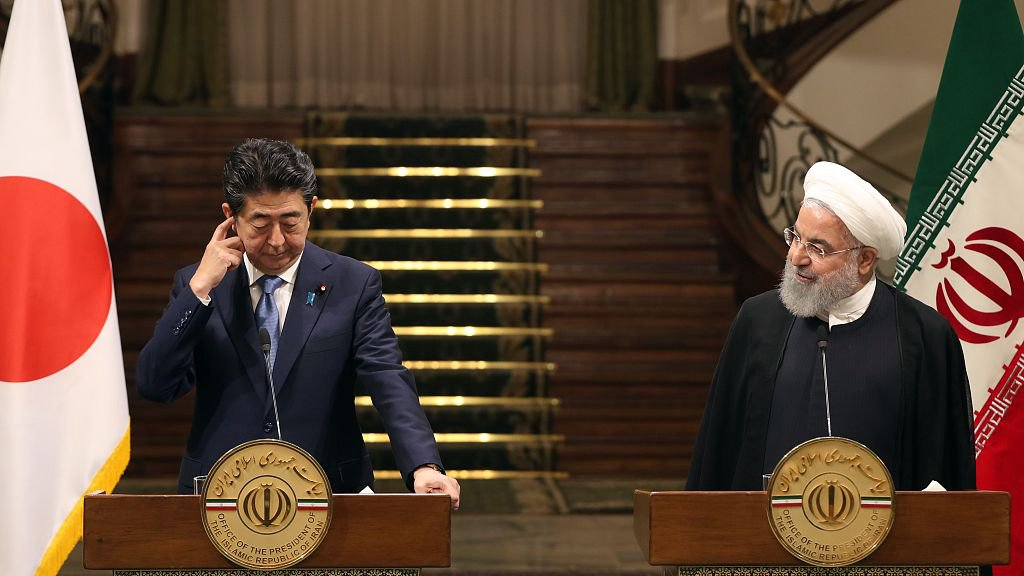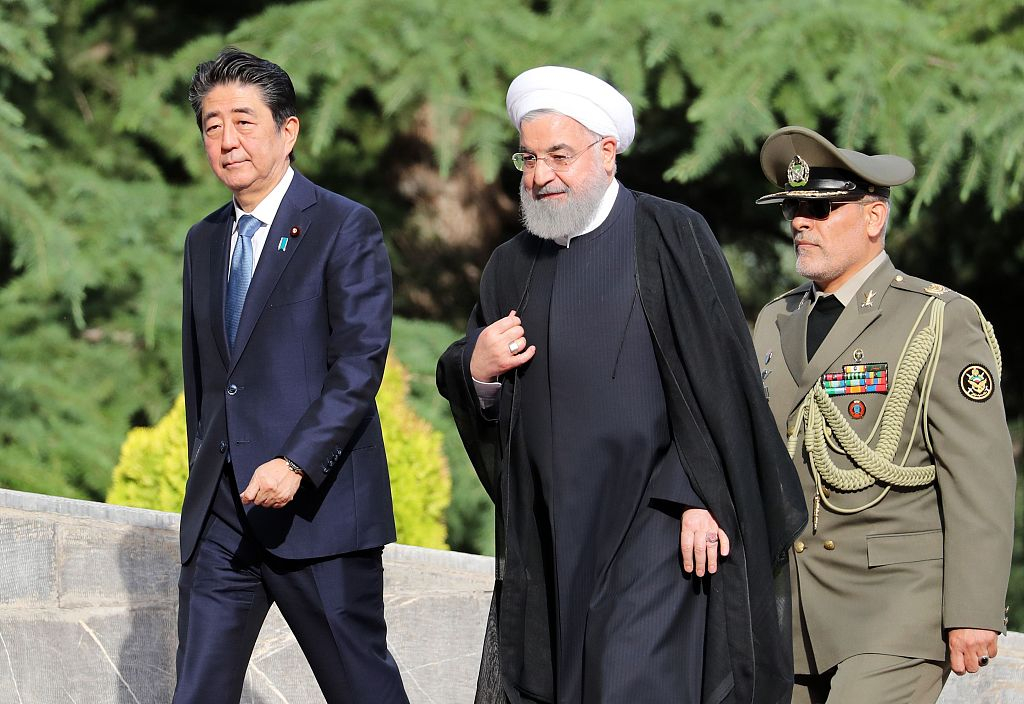

Before Japanese Prime Minister Shinzo Abe hosts dozens of heads of state for the first ever G20 summit in Japan later this month, he has been busy meeting with leaders such as U.S. President Donald Trump, Malaysia Prime Minister Dr. Mahathir Mohamad, and now Iran’s Supreme Leader Ayatollah Ali Khamenei and President Hassan Rouhani as he visits Iran this week.
The rare trip to the Middle East nation by a Japanese leader is considered to be a mediation mission to ease tensions between the United States and Iran. What new turns can be brought to the U.S.-Iran standoff? And how will the U.S.-Japan alliance evolve with the new development of U.S. diplomacy?
Harvey Dzodin, a senior fellow at the Center for China and Globalization, thinks Japan is in a great position to serve as a mediator since they have done business with Iran for hundreds of years and have kept an excellent relationship with post-WWII and post-Iranian revolution Iran. Also, as Prime Minister Abe will host the G20 in two weeks, it would be a tremendous breakthrough if he could get both the U.S. and Iran to talk on the sidelines of the G20.
“It’s a very serious matter, and not only the fate of the region, but in some way, the fate of the world hangs on its resolution,” said Dzodin.

Iranian President Hassan Rouhani (C) accompanies the Japanese Prime Minister Shinzo Abe (L), during a welcoming ceremony in the Iranian capital Tehran, June 12, 2019. /VCG Photo
Prof. Takesato Watanabe of Doshisha University said many media and intellectuals including himself in Japan do not think Prime Minister Abe’s role will be too big this time. He thinks Abe’s visit has two purposes. First, Abe wants to strengthen ties with Trump himself but not the U.S. as a nation. Second, Abe will face upper house elections next month and wants to give a good performance that appeals to voters.
Ghanbar Naderi, a columnist with Kayhan International, believes that the result of the meeting between Japanese and Iranian leaders doesn’t depend on Japan, but rather the reactions from Iran. Insiders from the Iranian parliament and foreign ministry revealed that many things will be discussed behind closed doors so there might not be a press conference by Abe and his Iranian counterparts.
Naderi said it’s clear that the U.S. backtracked on the nuclear deal, but what is unclear is how Iran is supposed to answer and react now.
“I think the best option for the Iranian government and leadership is to give the U.S. government the benefit of doubt. Yes, the United States and the Trump administration cannot be trusted but what else are we supposed to do? Something has to give away, this is the perfect excuse for Iran to give a chance to Japan to do some kind of mediation,” concluded Naderi.
(If you want to contribute and have specific expertise, please contact us at opinions@cgtn.com)

Copyright © 2018 CGTN. Beijing ICP prepared NO.16065310-3
Copyright © 2018 CGTN. Beijing ICP prepared NO.16065310-3